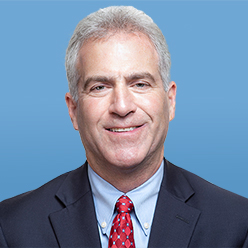As Europe’s fascists flexed their muscles in 1937, President Franklin Roosevelt cautioned: “Let no one imagine that America will escape; that America may expect mercy; that this Western Hemisphere will not be attacked; and that it will continue tranquilly and peacefully to carry on the ethics and the arts of civilization…There is a solidarity and interdependence about the modern world, both technically and morally, which makes it impossible for any nation completely to isolate itself from economic and political upheavals in the rest of the world, especially when such upheavals appear to be spreading and not declining.”
FDR had traveled to Chicago, at that time a hotbed of Midwestern isolationism, to explain that the oceans on America’s borders would not protect it from the growing global contagion.
FDR’s efforts to mold public opinion — which would continue until Pearl Harbor burst the isolationist bubble — come to mind as grassroots opposition to U.S. military aid for Ukraine grows.
At this inflection point, with Congress having excluded aid to Ukraine from the funding bill keeping the government running, the time seems right for President Biden to make a high-profile speech that outlines America’s stakes in Ukraine and addresses the “America First” arguments against them.
To date, Americans have been admirably supportive of U.S. efforts to lead a global coalition to give Ukraine the economic and military aid it needs to rebuff Russia’s attempted conquest and save its democracy. That has given the White House and a bipartisan majority in Congress the political leeway to send more than $43.9 billion in “security assistance” since the February 2022 invasion.
But with Russian and Ukrainian forces slugging it out amid conflicting reports about which side is winning, U.S. public support is waning.
In an ABC News poll last month, 41 percent of respondents said Washington is sending too much aid to Ukraine, compared to 33 percent who said so back in February and 14 percent in April 2022. The difference over time is startling. Whereas now about half think the U.S. is doing the right amount or too little in Ukraine, 73 percent thought so in spring 2022.
When it comes to public opinion, however, the bigger challenge may lie in open-ended polls about the concerns of average Americans. Asked about the most important issue facing the country, CNN reported in August, 44 percent mentioned the economy or economic issues, and no other issue even reached 10 percent.
Polling on public concerns reflects a basic reality that the White House would be wise to remember: other than when America is attacked or U.S. forces are engaged, individuals and families focus on basic matters such as paying their bills, educating their kids, and keeping everyone around them safe and healthy.
The less engaged the public, the more leeway lawmakers have to turn foreign policy matters into political footballs.
Though more U.S. aid probably would have sailed through the House and Senate as part of the government funding bill, House GOP hardliners convinced former Speaker Kevin McCarthy (R-Calif.) to strip it out. Before his ouster, he had talked about linking future aid to border security measures, which could complicate passage if it is tried.
Geopolitically, the timing could hardly be worse. Congress’ rejection of aid undercut Biden’s recent request and alarmed America’s European allies. Ukrainian President Volodymyr Zelensky had pleaded for more aid in a visit to Washington in late September. And a pro-Kremlin figure is poised to become Slovakia’s next prime minister, something which could threaten the pro-Ukrainian stance of both NATO and the European Union.
Biden, however, has the power to remind Americans that the war in Ukraine has ramifications far beyond that battlefield.
For one thing, the Kremlin has suggested Ukraine is part of a larger plan to resurrect as much of the Soviet empire as possible.
For another, China and Iran, which are both supporting Russia in its war against Ukraine, are watching closely for signs of lagging U.S. resolve — and timidity on America’s part might prompt one or both of them to pursue their bolder ambitions. China is increasingly saber-rattling against Taiwan, while Iran continues its expansionist ways across the Middle East and its harassment of U.S. Navy ships in regional waters.
To be sure, Biden won’t move mountains with a single speech. FDR certainly didn’t on that warm October day in 1937. But what he can do — especially if he reiterates his arguments in other important settings in the coming months — is shore up support from those who already back aid to Ukraine, and perhaps soften the opposition to it.
That, in turn, would further embolden lawmakers who have supported aid to continue to do so, and it might give aid-supporting lawmakers with more skeptical constituencies a bit more leeway to follow their own instincts.
With so much at stake in Ukraine, a president who has done an admirable job in rallying the West should leave nothing to chance.
Lawrence J. Haas, senior fellow at the American Foreign Policy Council, is the author, most recently, of The Kennedys in the World: How Jack, Bobby, and Ted Remade America’s Empire, from Potomac Books.
